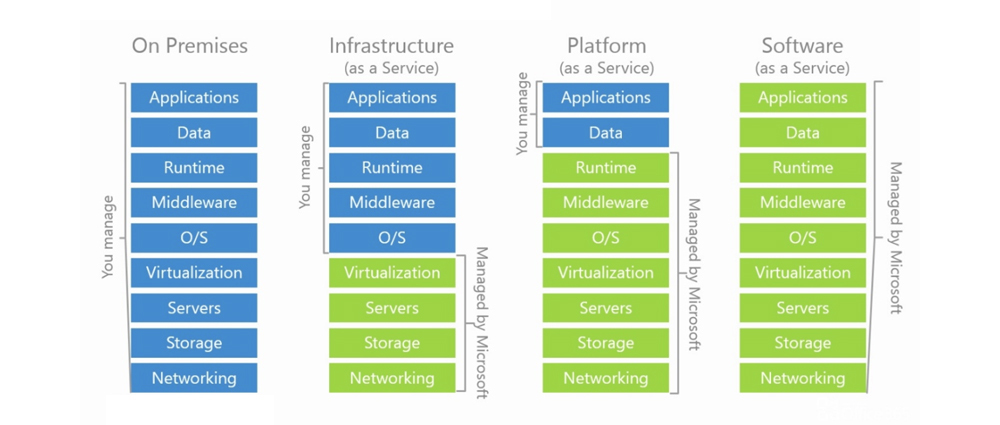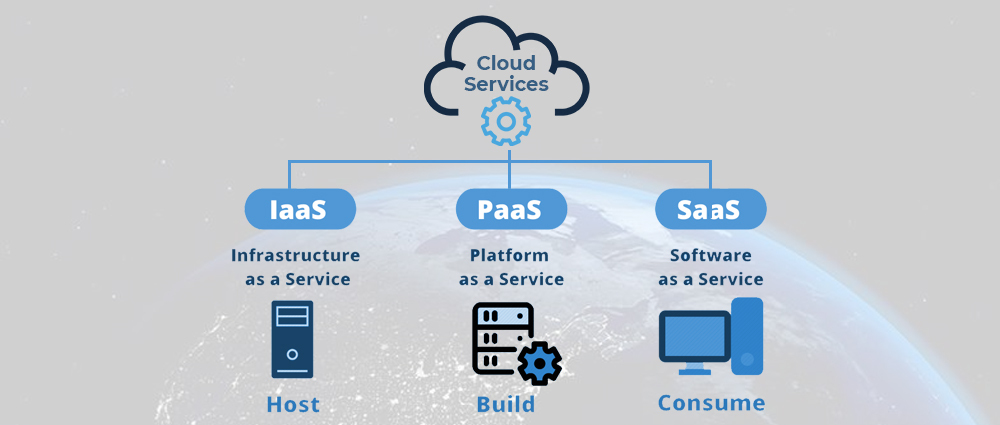Top Cloud Services – Comparing IaaS, PaaS, and SaaS features with AWS, Azure, and GCP

Gone are the days when the sky was the limit—today, it’s cloud! Organizations are swiftly migrating to cloud services, leveraging the flexibility, scalability, and cost-effectiveness they offer. However, navigating the cloud universe is not easy, especially with terms like IaaS, PaaS, and SaaS hovering around. But you need not fret! This blog incisively explores these cloud service models, comparing the offerings of three key players: AWS, Azure, and GCP.
The Cloud Trinity: IaaS, PaaS, and SaaS
Before we delve into the big three, let’s understand the fundamental cloud service models:
Infrastructure as a Service (IaaS): Rent the building blocks – virtual servers, storage, networking – and build your own IT infrastructure on top. Think of it as a customizable lego set for your digital needs.
Platform as a Service (PaaS): Focus on developing and deploying applications without worrying about the underlying infrastructure. Imagine a pre-built platform with tools and services waiting to bring your app ideas to life.
Software as a Service (SaaS): Subscribe to and use ready-to-go software applications over the Internet. Think of it as renting software instead of buying it, with the provider handling maintenance and updates.
AWS, Azure, and GCP in the Spotlight
Now, let’s see how these models translate into the offerings of the industry behemoths:
-
AWS:
IaaS: Amazon Elastic Compute Cloud (EC2) offers virtual servers with diverse configurations, while Amazon Simple Storage Service (S3) provides scalable object storage.
PaaS: AWS Elastic Beanstalk simplifies application deployment and management, and AWS Lambda offers serverless computing for code execution without managing servers.
SaaS: From Amazon WorkMail for email to Amazon SageMaker for machine learning, AWS offers a plethora of SaaS solutions.
-
Azure:
IaaS: Azure Virtual Machines provide customizable virtual servers, while Azure Blob Storage offers flexible object storage with various tiers.
PaaS: Azure App Service simplifies web app and mobile backend deployment, while Azure Functions offers serverless computing capabilities.
SaaS: Microsoft Office 365, Dynamics 365, and Azure Active Directory are just a few examples of Azure’s extensive SaaS solutions.
-
GCP:
IaaS: Google Compute Engine offers virtual machines with diverse configurations, while Cloud Storage provides flexible object storage with various options.
PaaS: Google App Engine manages app deployment and scaling, while Cloud Functions offers serverless computing capabilities.
SaaS: Google Workspace for collaboration, Cloud Spanner for globally distributed databases, and BigQuery for data analytics are some of GCP’s SaaS offerings.

IaaS vs. PaaS: Which One is Better?
The choice between IaaS and PaaS depends on your specific needs:
IaaS: Choose IaaS if you need fine-grained control over your IT infrastructure, have unique security requirements, or require specific operating systems. It’s ideal for large enterprises with complex IT needs.
PaaS: Choose PaaS if you want faster development and deployment, value ease of use, and prioritize agility. It’s perfect for startups or businesses focusing on core application development.
SaaS: The Real Champion
SaaS shines when you need specific software functionality without managing the infrastructure or software itself. It’s ideal for businesses of all sizes seeking cost-effective, readily available solutions.
AWS vs. Azure vs. GCP
Deciding between these giants depends on several factors:
Pricing: All three offer competitive pricing models, but consider your specific usage patterns for the most cost-effective option.
Services: Evaluate which provider offers the specific services you need, including regional availability and compliance certifications.

Ecosystem: Consider your existing IT infrastructure and tools. Each provider integrates better with its own ecosystem.
Support: Assess the level of support each provider offers, including technical expertise and response times.
While AWS, Azure, and GCP dominate the market, Oracle Cloud offers a compelling alternative, especially for businesses already using Oracle software. They boast strong database management solutions and cater to enterprise needs.
Summary:
The cloud is not a one-size-fits-all solution. By understanding your individual needs and carefully evaluating the offerings of different providers, you can choose the cloud services that will drive your business to new heights. So, get ready to explore the vast potential of the cloud and embark on your journey to growth and innovation!

 Careers
Careers




Pingback: Cloud Migration Guide - Step by Step Process to Seamlessly Shift()
Pingback: Unlocking the Cloud: Expert Guidance for Architecture, Implementation, and Data Migration()